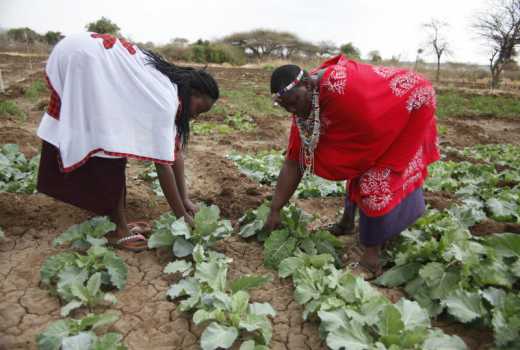×
The Standard e-Paper
Fearless, Trusted News

Kenny Matampash, a crop and livestock farmer and an agricultural solutions expert in Kajiado County, says African Indigenous Knowledge Systems (IKS) are crucial to addressing effects of climate change in Kenya.
Matampash says his knowledge in irrigation has helped him grow crops in dry land for commercial use.